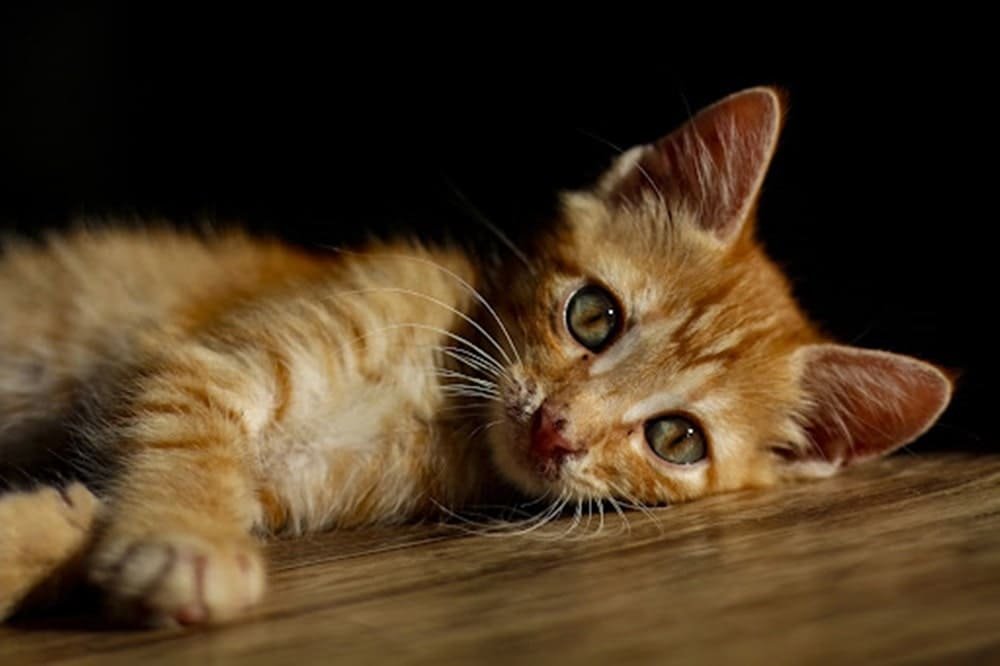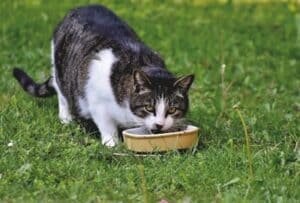
If you are a cat lover and owner, you may have encountered cat hair loss in the past.
How did you deal with it, and what did the vet advise you?
This article discusses the causes and treatments of cat hair loss and numerous methods for enhancing cat hair growth.
Is cat hair loss normal?
Cat hair loss is often normal, as cats spend about half their waking time licking their body with their tongue.
But excessive licking may lead to increased hair loss, ulcers and infection.
Some cats may also be born with a rare skin condition that causes nonpathological hair loss.
It is worth noting that cats shed their fur periodically, especially in the fall and summer, also known as the cat moulting season.
Causes of hair loss in cats
Most causes of cat hair loss are simple and easy to treat.
The following are some of the most common causes:
Allergies
Allergies are the first cause of hair loss in cats.
Some cats are allergic to certain foods, medications, mosquito bites, or dust and pollen.
Unfortunately, in this case, cats resort to licking their body until bald spots appear.
Therefore, these cats may need lifelong treatment to avoid the reoccurrence of allergic reactions.
Cats can acquire an allergic condition called eosinophilic granuloma complex, sometimes known as rodent ulcers.
Eosinophilic granuloma complex
They are a set of inflammatory skin conditions caused by a variety of factors, the most well-known of which are allergies.
Infection with a parasite or an allergy to certain foods may cause this type of dermatitis.
Parasites
Cats may be infected with different types of parasites, such as fleas, mites, lice, or ticks.
These parasites cause cats to lick and scratch excessively, harming the skin and producing ulcers and hair loss.
Infection with ringworm
This condition is one of the main reasons for hair loss in cats and is inaccurately referred to as worms, but it is actually a type of fungus.
It is distinguished by the formation of scaly rings on the skin in hair loss patches.
Hormonal changes
Cats have some hormones responsible for hair growth, and any imbalance in their concentrations may cause fur shedding.
The hormonal change is also one of the most important causes of hair loss for pregnant and lactating cats.
But this is normal with pregnancy and breastfeeding, and hair quickly returns to normal after this period.
Stress and anxiety
Some may be surprised to learn that cats, like humans, experience nervous and anxious moments.
When cats feel stressed, they lick parts of their body, such as the abdomen, the side, or the legs, causing their fur to fall out.
Veterinarians call this condition Psychogenic Alopecia.
It is quite common in female cats of neurotic breeds.
Pain
Sometimes cats get arthritis and constantly lick pain areas.
Malnutrition
Cats may become malnourished due to eating unhealthy foods, causing a decline in general health and, accordingly, shedding hair.
Rare causes
Some pure breeds – such as Himalayan and Bengal cats – are born with particular genes that cause hair loss, while the Pharaonic cat breeds are born hairless.
Cats may also lose hair in some diseased cases, but the link between hair loss and these conditions is rare, for example:
- Immune system disorders.
- Diabetes.
- Hyperthyroidism.
- Adrenal gland abnormalities.
- Cancer.
Diagnosis of cat hair loss
The vet begins with a clinical examination of the cat to determine the cause of hair loss.
He may take a sample of the cat’s hair or skin for examination to detect infection with fungi or parasites.
Usually, the vet resorts to taking a skin sample after anesthesia to detect some diseases or allergic conditions.
He also requests a blood test to detect the presence of any other disease that may cause hair loss.
The cat owner must inform the vet of any psychological changes that have occurred to his pet, as they may have an impact on the cat’s hair loss.
If the vet does not discover the cause after the above examinations, he asks the cat owner to go to a veterinary dermatologist.
Cat hair loss treatment
Treatment for cat hair loss depends on the cause, and treatment is often quick and easy.
If the cat is infected with parasites, such as fleas or ticks, the vet recommends medications to eradicate them and instructs the owner to use specific household detergents.
The vet recommends an antifungal in the case of a fungal infection.
However, when the cause is an allergy, more time and testing are required.
But once the vet knows the substance that causes the allergy – whether foods or chemicals – avoiding this substance becomes the best treatment for that condition.
It is also necessary to avoid the causes of stress and anxiety that harm cats.
It is preferable that the owner resorts to a psychologist to help him figure out what worries his pet or raises his tension.
Then, the doctor may prescribe appropriate psychiatric medications for cats to treat this anxiety.
As for excessive licking due to joint pain, it is inevitable to treat this pain to reduce the intensity of licking and thus stop hair loss.
How can I make my cat’s fur thicker?

Perhaps now you realize that one of the most effective ways to thicken cat fur is to overcome the causes of hair loss.
Remember that cat hair consists mainly of protein, so providing adequate amounts of protein in food is the first choice for hair thickening.
Likewise, providing a balanced diet that contains carbohydrates, fats, and proteins, has a significant role in increasing the thickness of the hair itself.
So now we mention five tips cat owners should follow to ensure thick, healthy, and shiny cat hair.
Cat supplements
Offer additional supplements to your pet from time to time, especially those containing protein, omega-6 and omega-3, vitamins, and minerals.
Those compounds are available in the following foods:
Cooked egg yolk
Egg yolk contains sufficient quantities of proteins, vitamins, and minerals to promote hair growth and skin health.
However, there are a few things to keep in mind:
- Do not serve more than three egg yolks per week.
- Do not serve it raw as it may contain bacteria, such as Escherichia coli (E. Coli) or Salmonella.
- Avoid serving egg whites because they contain the enzyme avidin, which reacts with biotin, essential for healthy skin and hair, and thus inhibits its absorption.
Fish oil
Fish oil contains omega-3, also found in flaxseed oil.
Mixing fish oil with chicken fat or other vegetable oils provides the cat with both; omega-3 and omega-6 fats.
It is sufficient to give this mixture to the cat once a week.
Zinc
Zinc helps regenerate and regrow cat hair, so if you notice a delay in cat hair growth, this may be a sign of zinc deficiency.
Brushing cat fur
Brushing the fur contributes to removing dead hair falling out due to licking, as the presence of dead hair impedes the growth of new hair.
The accumulation of dead hair on the cat’s skin may also allow parasites or fungi to grow, causing inflammation and skin irritation.
Brush short-haired cats 1 to 3 times a week, while Persian long hair cats need brushing once or twice a day.
Showering
Showering helps remove the remaining loose hair or dead skin.
But it is not preferable to over-bathe the cat for two reasons:
- The cat licks its body to clean it naturally.
- Bathing may remove oils essential for healthy skin.
Therefore, it is sufficient to regularly bathe the cat once a month, using only special cat shampoo.
Suitable room temperature
Cats have a particular mechanism in their fur to maintain their body temperature between 38 to 39.2°C.
However, when the temperature rises above that, they begin to lick their body to rebalance the temperature.
Therefore, maintaining an appropriate temperature prevents excessive body licking, which leads to more hair loss.
Avoid stress
Do not forget that providing care and a calm environment is necessary to avoid stress leading to excessive licking and hair loss.
In conclusion, take good care of your pet and schedule regular vet appointments to detect any skin illness to maintain long healthy hair.
Read Also;
Care for newborn kittens | Food, shelter, and vaccinations